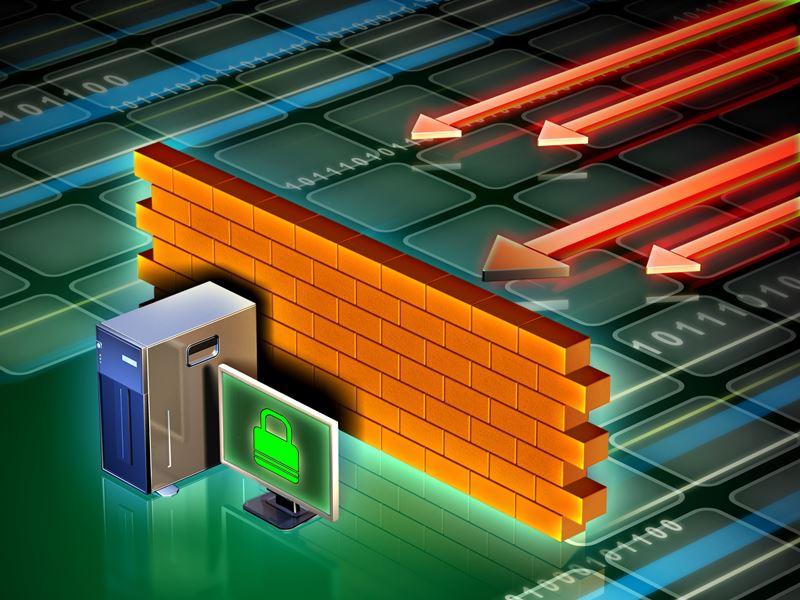In today’s world, cyber attacks are becoming increasingly prevalent. Businesses, organizations, and individuals risk having their sensitive information compromised by cybercriminals. To protect your network and data from such attacks, it is essential to have a firewall in place. In this article, we will discuss what a firewall is, why you need it, and how it can help protect your network.
What is a Firewall?
A firewall is a security system that prevents unauthorized access to or from a private network. It can be hardware, software, or a combination of both. A firewall creates a barrier between your internal network and the outside world, allowing only authorized traffic. It acts as a gatekeeper, monitoring and controlling the incoming and outgoing network traffic based on predefined security rules.
Why Do You Need a Firewall?
A firewall is an essential part of any network security strategy. Here are some reasons why you need a firewall:
Protects Your Network from Cyber Attacks
One of the primary reasons to have a firewall is to protect your network from cyber-attacks. Cybercriminals are constantly looking for vulnerabilities in your network that they can exploit. A firewall can help prevent these attacks by blocking unauthorized access to your network.
Controls Access to Your Network
A firewall can also control access to your network. It can block traffic from unauthorized users, preventing them from accessing sensitive information on your network.
Prevents Malware from Entering Your Network
A firewall can also prevent malware from entering your network. It can block traffic from known malicious sources and scan incoming traffic for malware and viruses.
Helps Ensure Regulatory Compliance
Many industries have regulatory compliance requirements that mandate the use of a firewall. For example, the Payment Card Industry Data Security Standard (PCI DSS) requires a firewall to protect credit card data.
Enhances Your Network Performance
A firewall can also enhance your network performance. By blocking unnecessary traffic, it can improve the speed and reliability of your network.
Types of Firewall
There are several types of firewalls, including:
Packet Filtering Firewall
A packet-filtering firewall is the simplest type of firewall. It examines each packet of data that enters or leaves the network and compares it against a set of predefined rules. If the packet matches the rules, it is allowed through; otherwise, it is blocked.
Stateful Inspection Firewall
A stateful inspection firewall is more advanced than a packet filtering firewall. It not only examines each packet of data but also keeps track of the state of the connection. This means that it can identify and block unauthorized traffic that attempts to exploit vulnerabilities in the network.
Application Firewall
An application firewall is designed to protect specific applications or services. It can identify and block traffic unrelated to the application or service, helping to prevent attacks that target specific applications.
Next-Generation Firewall
A next-generation firewall (NGFW) is a more advanced type of firewall that includes additional security features, such as intrusion prevention and advanced threat protection.
FAQs
Q1. Can a firewall prevent all cyber-attacks?
A1. No, a firewall cannot prevent all cyber attacks. It can help prevent some attacks, but it is not a complete solution. Other security measures, such as antivirus software, anti-malware software, and regular software updates, are also necessary to protect your network from cyber-attacks.
Q2. Do I need a firewall if I have antivirus software?
A2. Yes, you still need a firewall even if you have antivirus software. Antivirus software is designed to protect your computer from viruses and malware, while a firewall is designed to protect your network from unauthorized access.
Q3. Are there any disadvantages to using a firewall?
A3. One disadvantage of using a firewall is that it sometimes blocks legitimate traffic. This can happen if the firewall rules are too strict or the traffic is misidentified as malicious. Additionally, firewalls can sometimes be bypassed by advanced cyber attacks, so it’s important to have multiple layers of security in place.
Q4. Can a firewall slow down my network?
A4. Yes, a firewall can slow down your network, especially if it is not properly configured. However, the benefits of having a firewall generally outweigh the potential performance impact. It’s important to work with an IT professional to ensure that your firewall is properly configured to balance security and performance.
Q5. How often should I update my firewall?
A5. It’s important to update your firewall regularly to ensure that it can effectively protect your network against new and emerging threats. How often you should update your firewall depends on several factors, including the size of your organization and the level of security risk. It’s recommended to work with an IT professional to determine the appropriate update schedule for your specific needs.
Conclusion
A firewall is an essential component of any network security strategy. It helps protect your network from cyber attacks, controls access to it, prevents malware from entering it, helps ensure regulatory compliance, and enhances your network performance. There are several types of firewalls available, each with its own set of advantages and disadvantages. It’s important to work with an IT professional to determine the appropriate type of firewall for your specific needs and to ensure that it is properly configured and updated regularly.

